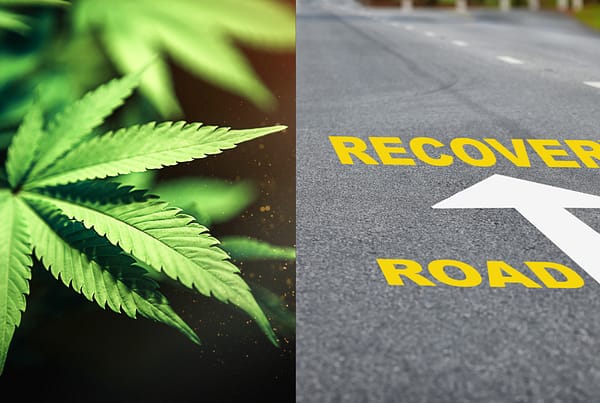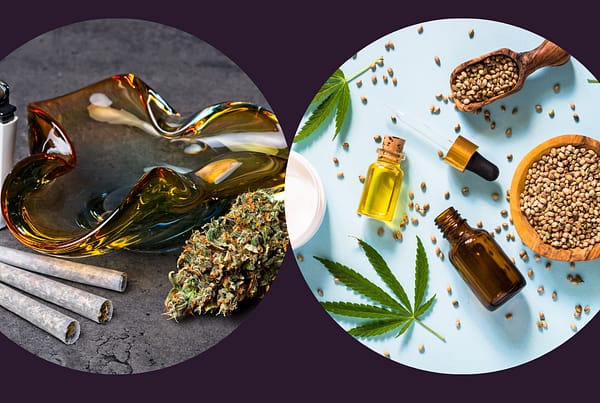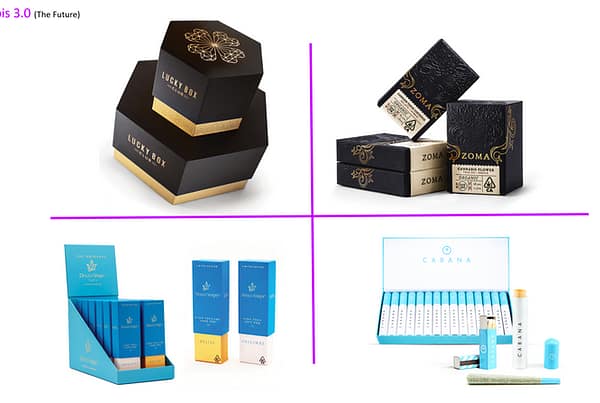On June 21, 2018, Canada made history by becoming the second country in the world to legalize the cultivation, production, distribution, sale and consumption of cannabis on the federal level. The Cannabis Act came into effect on October 17, 2018, paving the way for a number of other industrialized countries to stand up and take notice of what many experts believe will become a multi-billion dollar industry in just a few short years.
While great strides in the industry were taken last year, the Act itself is still, by design, a work in progress. Recent months have seen a number of amendments that will continue to transform the cannabis retail industry. Outlined below is everything a cannabis retailer needs to know about the 2019 Canadian cannabis regulations.
The Cannabis Act: An Overview
When cannabis was legalized throughout Canada in 2018, the laws purposely did not cover a range of products, namely those falling within the edible, extract and topical categories. These items pose specific health and public safety concerns, and the government felt it needed more time to work out regulations to address these issues. A deadline of one year was placed on regulators to amend the law to include these items, which would aim to address three primary concerns:
- To reduce the profits earned by criminals in the hopes of eliminating the cannabis black market altogether
- To ensure the health and safety of the citizens of Canada
- To keep cannabis, legal and otherwise, out of the hands of children
An official announcement by the Government of Canada was released in June 2019 outlining the planned amendments to the Cannabis Act to include the legal production and sale of edibles, extracts and topicals. The amendments will be officially enacted on October 17, 2019. What this amendment says, in short, is that strict guidelines must be followed in order for these items to be sold legally by a cannabis retailer. Some of these guidelines include:
- THC limits – Edibles must not exceed 10mg per package, and extracts and topicals must not exceed 1,000mg per package
- Packaging – All packaging must be child-resistant and not contain any designs, colors, or logos that would appeal to children
- Labeling – All items must be clearly marked with the standard cannabis symbol, contain ingredient listings and health warning labels and cannot make health or cosmetic claims
In addition to the announcement, the Government made available evidence-based resources discussing the risks associated with cannabis use. This, along with strict labeling and packaging rules, will address concerns regarding public safety and prevent sellers from marketing products to children. The Government further contests that their new rules will allow cannabis retailers to compete with the black market, with the ultimate goal of eliminating illegal cannabis activity.
Introducing Cannabis Edibles, Extracts, and Topicals
While the Cannabis Act was a major step forward for the entire legal cannabis industry, the absence of regulations around edibles, extracts, and topicals did little to dampen the profitability of the black market. The Act certainly decriminalized the use of cannabis products, but consumable items such as beverages, gummies, and other items have only been available through illegal, non-government sanctioned resources.
The 2019 Canadian cannabis regulations are expected to strike a major blow to the black market by opening up a much wider range of products that can be sold legally.
Edibles and beverages are among the most popular,
with items such as gummies, brownies and cookies expected to lead the charge.
Vaping has grown in popularity over the years, so the addition of extracts to the Cannabis Act is predicted to provide the biggest boost to the cannabis retail industry, with current estimates landing on 20% of expected sales. In fact, the 2019 Canadian cannabis regulations also removed the previous THC limit of 3% on cannabis oil, thus further increasing the competitiveness of cannabis retailers. Extracts will also include pills, capsules and other ingestible concentrates.
Topicals form another area that has the potential for high profits. While retailers cannot make any claims towards health, wellness, pain relief and cosmetic benefits; items that can be applied to the skin, nails and hair remain well-known and popular among consumers.
Regulating Edibles in the Cannabis Retail Space
The overall regulations for edibles state that items must not contain any ingredients other than food or food additives as outlined in the Food and Drug Regulations (FDR). Items also cannot be fortified with vitamins or other nutrients, and must follow the same guidelines as any other consumable food product as regulated by the Food and Drug Act (FDA).
Cannabis retailers are not permitted to store edibles that require refrigeration or freezing, so items such as ice cream would not be allowed. This could also affect certain beverages, as those that require refrigeration before opening will not be permitted. All items must be “shelf-stable”, so as long as beverages can be stored on a shelf until they are opened, they will be permitted. All shelf-stable items will need to be clearly labeled with an expiration date not exceeding 90 days.
One final point involves meat, poultry and fish products. As a means of ensuring the safe consumption of such items, it will generally be prohibited to use these ingredients in cannabis edibles. The only exception is when the ingredients are in dried form and follow the same regulations as dictated by local provincial or territorial laws.
Understanding the 60-Day Rule
One of the more contested parts of the Canadian Cannabis Regulations is the “60-day rule”, which states that any business planning to sell a new cannabis product must notify regulators at least 60 days before making it available to the public. Many such companies were hoping to begin this notification process once the regulation was announced in June. However, written notification will have to wait until new regulations officially go into effect on October 17.
As outlined in the 2019 Canadian cannabis regulations, those holding a processing license will need to provide written notice to Health Canada. They are required to disclose the class of cannabis (edible, plant, extract, etc.), product description and the expected sale date. For cannabis retailers, this means they will need to plan ahead if they are taking on a new product in their business, as it will take at least two months for that item to gain approval.
Cannabis retailers should note that the 60-day rule is a guideline that provides a minimum expectation. Since this notification is one part of the process towards bringing items to the market, retailers should expect that some products will take longer to be available. Proponents of the 60-day rule say this is a necessary part of the process that will reduce bottlenecking and distribution problems that were seen in 2018.
The New Canadian Cannabis Tracking System Order
The Cannabis Tracking System Order was created as a means for the Government to track cannabis throughout the country throughout the supply chain, from production to sales. This level of tracking allows the Government to detect, reduce and deter illegal activities in their continued effort to eliminate the cannabis black market.
Beginning October 17, the current Cannabis Tracking System Order will be updated to include the new classes of cannabis, including edibles, extracts and topicals. In the new Order, the following entities are required to provide monthly electronic reports:
- holders of federally issued licenses for cultivation, processing and sale for medical purposes, who are required to provide information to the Minister;
- public province and territory (P/T) bodies that are authorized to sell cannabis under a P/T Act, which are required to provide information to the Minister; and
- private distributors and retailers, who are required to provide data to the public body authorized to sell cannabis or that authorizes sale under P/T legislation (typically a Crown corporation or a provincial ministry).
Reporting from cannabis retailers should include details on the quantity of cannabis that is sold, returned, received, stolen, lost and destroyed. The value of closing inventory and amount sold must also be reported. It should be noted that cannabis retailers are not required to report on any personal information about consumers, so customer records can remain private. The need for detailed reporting will continue with the introduction of edibles into the system, which increases the need for retailers to leverage solutions like TechPOS that are custom made for this purpose.
Closing Thoughts
The Canadian Government has proven time and again that they are committed to seeing the cannabis industry reach its full potential. While keeping a close eye towards protecting children and the public at large, they believe they have set the legal cannabis retail industry on a path that will allow them to compete, and ultimately defeat, the black market. Time will tell if these efforts will be successful, but either way, Canada has set the bar for federal legalization of cannabis and other developed countries around the world will surely be keeping a close eye on their progress in the coming months and years.





